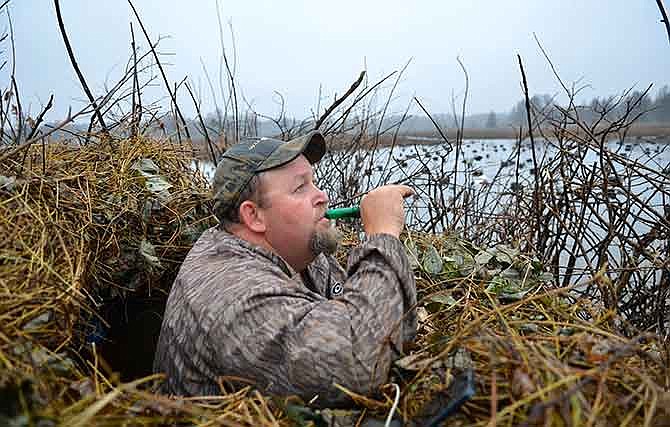In fog so thick you could barely see your hand in front of your face, Bill Blakely's boat raced through the thick stands of cypress trees covering Reelfoot Lake.
This ride took trusting your guide to a whole new level. But sure enough, we arrived at Blakely's duck blind unscathed.
Reelfoot Lake is located in the northwest corner of Tennessee, just a mile or so off the Mississippi River. The shallow, timber-filled, 18,000-acre natural lake is a sportsman's paradise. It's unquestionably one of the best crappie fishing lakes in the country.
But come winter, Reelfoot turns into a duck factory. Hundreds of thousands of birds dump into the lake each season as they migrate along the Mississippi. Hunters from around the country descend on Reelfoot each year to experience not only duck hunting, but duck hunting culture at its finest.
Reelfoot is an experience like none other. The lake, filled with cypress trees, has a unique beauty all its own. The combination of this scenic appeal, the sheer number of ducks, fishing, southern fried food and a local economy based on an outdoor lifestyle is enough to draw duck hunters to Reelfoot from hundreds of miles away.
But add in the fact Blue Bank Resort is a premiere lodging and dining destination, and you're hunting with Blakely, the unofficial "King of Reelfoot," and well, duck hunting trips just don't get any better.
On this trip, I was excited to introduce my friend, Jeremy Stephens of Delta Waterfowl, to the Reelfoot way.
Blakely's life revolves around fishing and hunting on Reelfoot Lake. It's all he's ever known.
"I started guiding for Blue Bank in the ninth grade, and been doing it ever since," Blakely said.
He has 40 years of experience on Reelfoot and it shows, in both his knowledge of the lake, how the ducks work and his ability to please his clients. When you spend more than 50 days a year in a duck blind, you have to figure out how to make the experience about more than just shooting ducks. So Blakely built the duck hunting Taj Mahal.
My normal duck-hunting routine is hauling bags full of decoys into flooded fields where I set them out in the morning and gather them back at the end of the hunt, after standing in freezing water for the hours in between. It's a tough, labor-intensive process.
This recent hunt with Blakely was a bit different.
We pulled his boat into the blind. Yes, you read that right. We pulled his boat into the blind, opened the door and stepped in. Blakely flipped a switch and the lights came on. To my amazement there was a full-sized stove in the corner and a heater on both ends. There were eight shooting stations. Blakely manned the far left end where he controls the spread of electronic Mojo decoys, a custom-made splasher and a jerk rig of 2x6s for making waves that add motion to the 1,600 decoys filling his "hole."
There is a lot of competition on Reelfoot, with blinds spread out about 200 yards apart throughout most of the lake. So calling is important there. Blakely and his assistant guide, Dustin Butler, bellowed on their duck calls. It worked. Right at legal shooting time ducks were circling us. Blakely and Butler started calling and ducks began dropping in on us. After an intense volley of gunfire, greenheads splashed down in the coffee-colored water.
As the morning progressed, we stacked up the ducks. After a while, I allowed myself a break from the action to relax by a heater, eating an orange and drinking coffee. For lunch, Blakely fried pork chops and potatoes and made biscuits. Being full and warm made staying awake until the hunting ended at 3 p.m. the greatest challenge of the day.
After a warm shower and a change of clothes, Jeremy and I caught back up with the rest of our party in the dining room. We ordered drinks and a table full of appetizers. Just after polishing off the last of the catfish bites and sautéed shrimp, the ribeyes arrived. I'm telling you, this was a lean back in your chair, pat your belly and smile kind of dinner in the Blue Bank restaurant.
Duck season is open in Tennessee until Jan. 25, 2015.
See you down the trail ...
Brandon Butler, Conservation Federation of Missouri executive director, is an outdoors columnist for the News Tribune. Contact him at [email protected].

